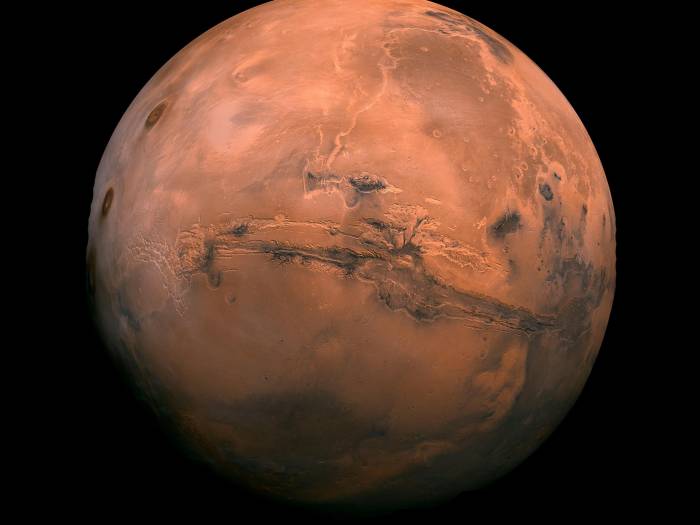Scientists – as well as science fiction fans – have long hoped that we might be able to change Mars so it has an Earth-like atmosphere, allowing us to comfortably live there. Plans to do so have included dropping thermonuclear weapons at the planet's poles – an idea supported by Elon Musk.
But there simply isn't enough carbon dioxide on the planet to allow the atmosphere to ever become habitable for humans, according to new research. At best we could achieve only a fiftieth of what is needed, and would only be able to raise the surface temperature by less than 10 degrees Celsius, the study published in Nature Astronomy reveals.
Proponents of terraforming often suggest that we could use the greenhouse gases that are stored in Mars' rocks and polar ice caps. If those were released back into the atmosphere, it would make it thicker, heat up the planet, and allow liquid water to remain on the surface.
That, in turn, would allow future Mars settlers to roam around the planet without dying, they suggest.
The only greenhouse gas present in high enough quantities on Mars to warm it up is carbon dioxide, according to authors Bruce Jakosky and Christopher Edwards. They explored all of the known reservoirs of the gas across the planet to work out how much is available, by using information provided by the rovers and spacecraft that have surveyed the planet.
It is far from enough, they write. As such, it will not be possible to terraform Mars without technology that is currently unknown, the authors conclude.
Scientists will learn more about the water and carbon dioxide levels on the red planet in the coming years, as a variety of rovers and spacecraft head to the planet. But they will need to find huge and unknown reservoirs if the plan to use greenhouse gases is to work.
The Independent
















































